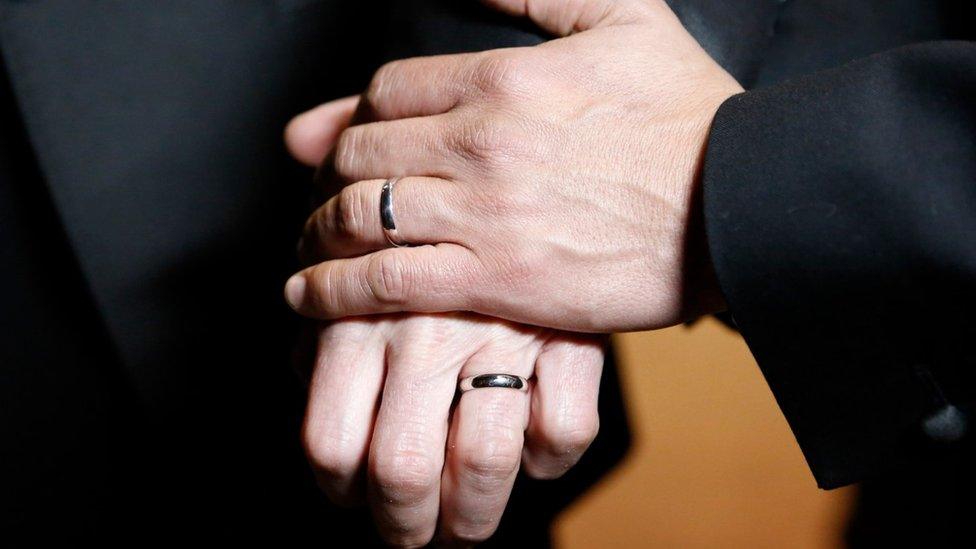Gay marriage vote: The couple hoping to marry in church
- Published
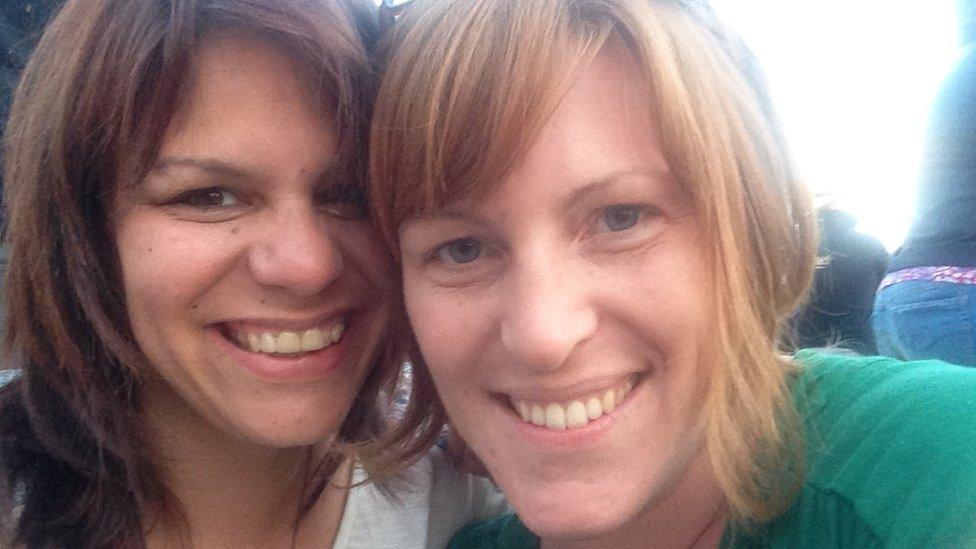
Lee (left) and her partner Anne are hoping to have their church wedding ceremony in either Manchester or Norwich
As gay marriage ceremonies are expected to be approved by a denomination of the Christian church, Lee Battle and her partner are hoping to be among the first to have a church wedding in the UK.
After months of uncertainty 37-year-old Lee is hoping she will finally be able to send out her wedding invitations.
Currently the mum-of-two and her partner Anne Swift cannot be specific about the venue or the date of their ceremony.
They're holding back because on Saturday the general assembly of the United Reformed Church (URC) will decide whether same-sex marriage ceremonies can be held in its churches.
The URC has around 56,000 members in Britain, external, and if the motion is passed it will be the first major Christian denomination in the UK to allow such ceremonies to take place.
'Just overwhelming'
The motion is expected to gain the two-thirds majority it needs for approval - and church officials reckon the first weddings could take place in the autumn.
Lee, who lives in Manchester and is to begin training as a URC minister in September, is trying hard to contain her excitement.
"To be able to think that God could be involved in this ceremony for me is just overwhelming," says Lee, who is currently in a long-distance relationship with her partner Anne, who works as a doctor in Cambridge.
Lee, who was formerly in a civil partnership with someone else, says it's "completely illogical" for her to marry outside a church.
"I remember on my other wedding day it was like a major person missing out of the room," she explains.
"It didn't feel quite as it should do because there was this big part of me that was missing in the day, and so to be able to include God and have hymns is just for me a huge step forward."
'Sense of excitement'
The URC is not likely to be the only Christian denomination to approve gay marriages in its churches. Quakers allow gay marriages in their places of worship and clergy of some smaller congregations have been known to hold the ceremonies.
Meanwhile, the general synod of the Scottish Episcopal Church - which has about as many members as the URC - is set to make a decision on the matter next summer.
The Very Reverend Kelvin Holdsworth, the provost of St Mary's Cathedral in Glasgow, expects gay members of his congregation to tie the knot there.
"Obviously there's a sense of excitement that this could be the moment where it's going to happen," he says.
"It always used to be the case, of course, that people who couldn't get married in England would come running up to Scotland to get married at Gretna Green. And I suspect we'll get a bit of that going on."
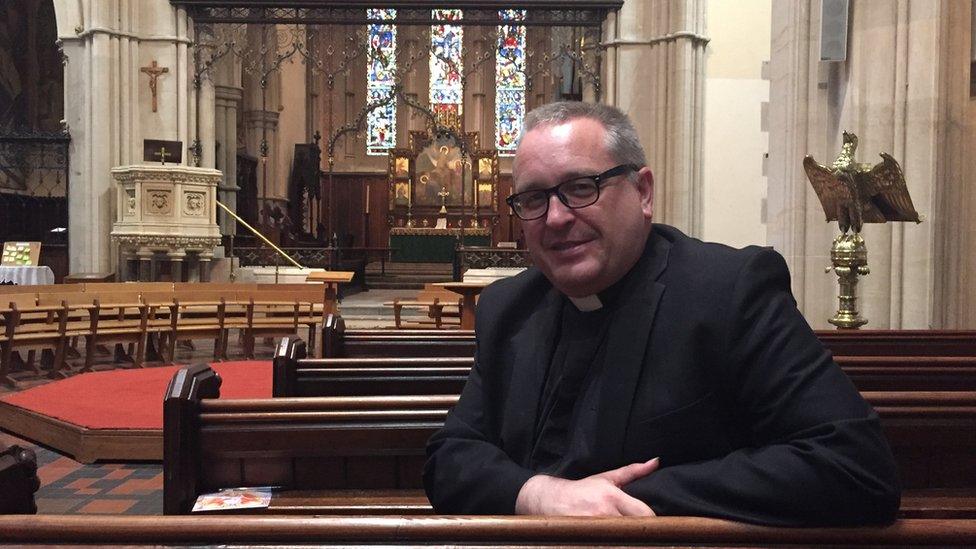
The Very Reverend Kelvin Holdsworth expects to hold same-sex marriage ceremonies in the future
And there stands a problem for the Church of England, whose general synod also meets this weekend, and whose 483 bishops, clergy and lay members will eject press and public for two days of private "shared conversations" about human sexuality.
The Reverend Andrew Foreshew-Cain, a gay north London vicar who flies a rainbow flag from his church's flagpole, will be taking part.
Members of the Church of England held similar shared conversations around the country over the past year - where Mr Foreshew-Cain says he wasn't always welcomed by traditionalists.
"For the most part it was a relatively comfortable experience. [But] there were some more conservative people there and that wasn't particularly comfortable," he says.
"I was told I was a false preacher and one person was unable to confirm I was a Christian at all when directly asked.
"That demonstrated for me that there is probably an absolute line in the church and some people within it think it's their way or no way, which is not, I think, ultimately going to change through these conversations," he explains.
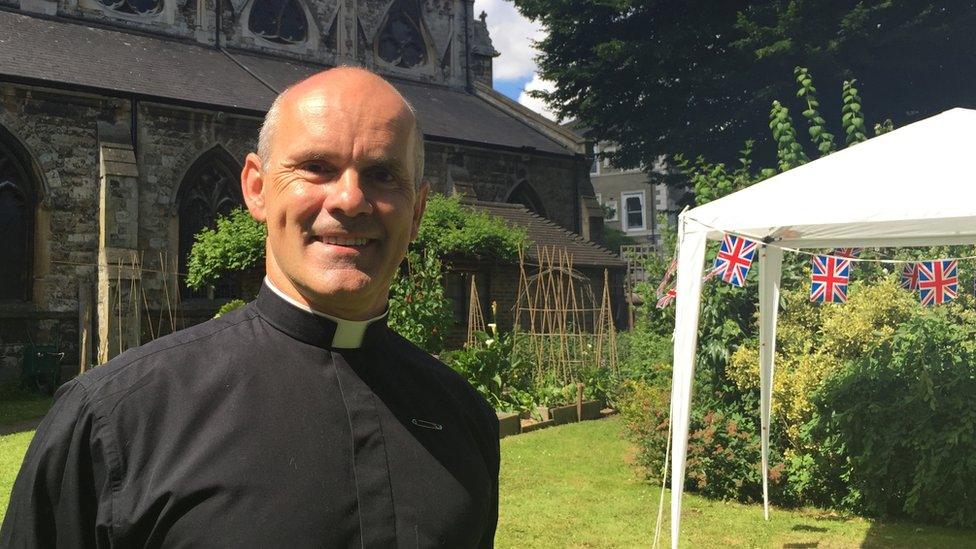
Mr Foreshew-Cain said the issue of same-sex marriage has split opinion
Meanwhile, Susie Leafe, the chairwoman of a group called Reform, which aims to 'reform' the Church of England according to the Holy Scriptures, holds a different view.
She has advised fellow conservative evangelicals not to take part in those conversations.
"The Bible, which is God's word, is very, very clear, that the only place for sexual relationships is within heterosexual marriage," she says.
"That is what God blesses, and I believe that I want to stay with what God says and not what our culture says."
'Hold together'
Somehow the Church of England's bishops will have reconcile these factions in their response to the conversations - which will come at a future synod meeting.
It will be up to the church's bishops to decide what to do about a liberal Anglican wing which is urging change.
The choice seems to be to upset its members by refusing to make concessions to them - or to upset traditionalists by doing just that.
The Rt Rev David Walker, the bishop of Manchester, describes the task as producing "order out of chaos".
"I really do hope and believe that the Church of England can get to a place where even if not absolutely every last single person can think yes that was a good place to get to, the vast majority, almost of all of us, will be able to hold together," he says.
The last big Church of England split - over women bishops - ended in 2014 when members of the synod pulled together in the name of unity and supported a complicated compromise.
There are now women bishops, but that took years to agree.
The church is prepared for difficult times ahead.
But Lee believes the Christian perception of LGBT people is changing.
"I don't think we're there yet, but I'm optimistic that we will get there. I think there has been a monumental societal shift within the LGBT community and that everybody widely accepts that this is about love," she says.
- Published10 June 2016
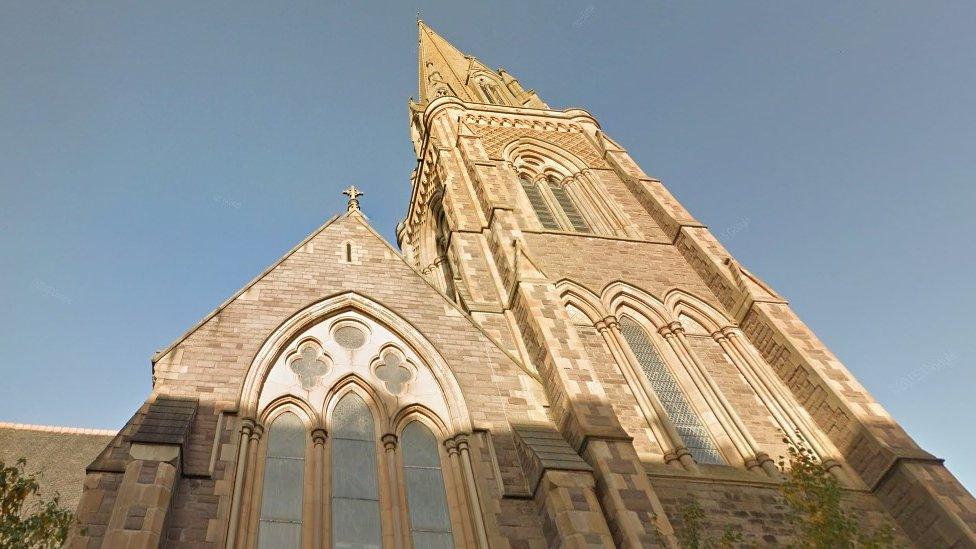
- Published30 January 2016
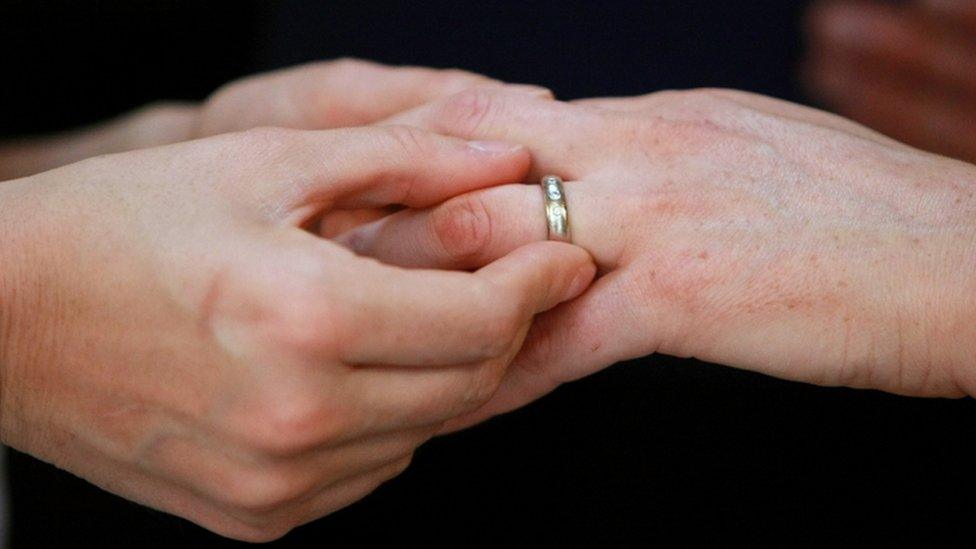
- Published17 November 2014
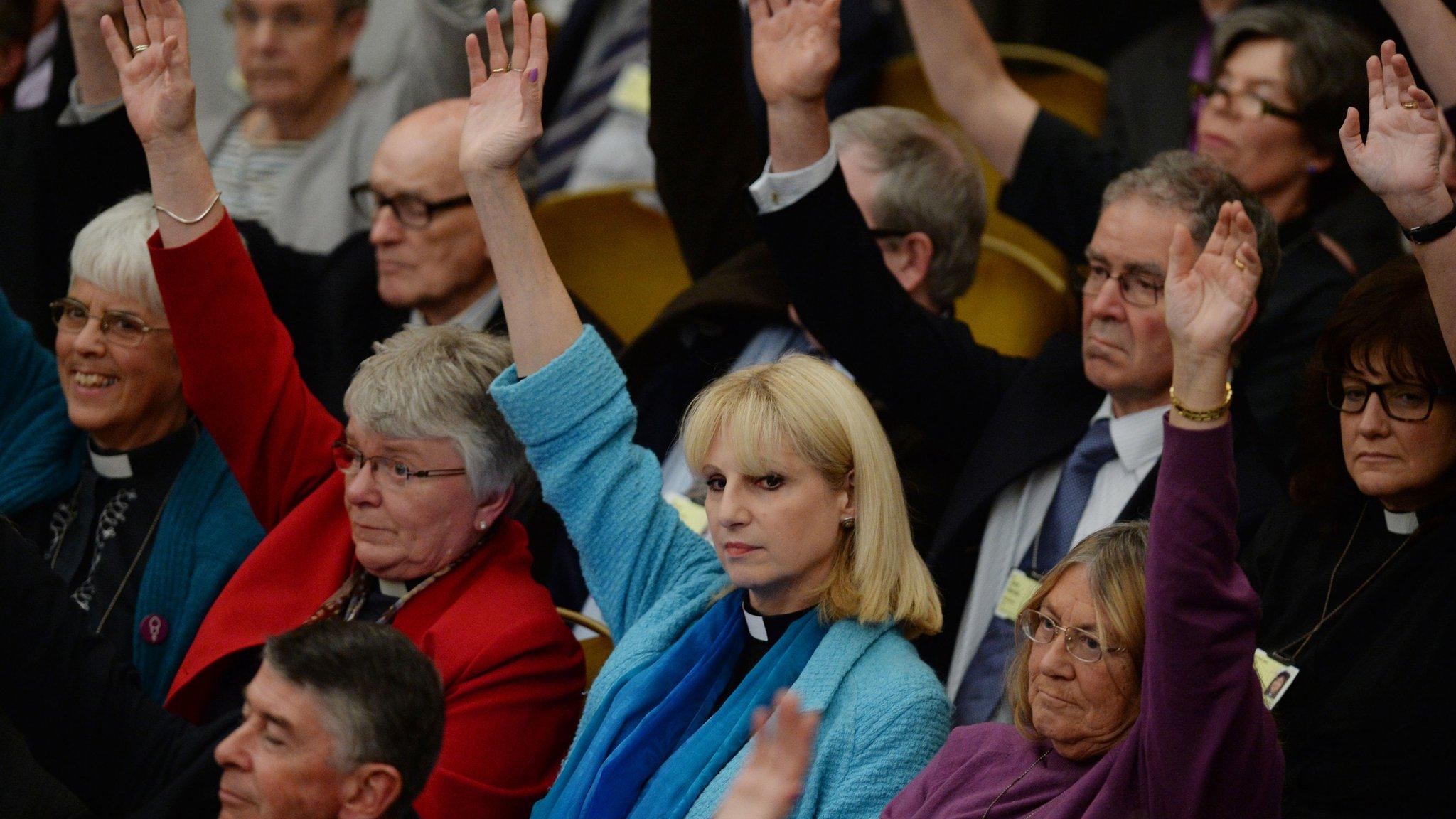
- Published21 May 2016
